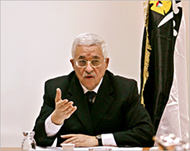Sharon welcomes Turkish mediation
Turkish Prime Minister Recep Tayyip Erdogan paid his first official visit to Israel on Sunday, looking to repair damaged ties with the country and offering to mediate for Middle East peace.

The Turkish prime minister, who triggered a diplomatic crisis last year by accusing Israel of engaging in “state terrorism”, said the two countries needed to show a united front in the global war on terror by attacking its root causes.
After talks late on Sunday with Israeli Prime Minister Ariel Sharon, both leaders expressed confidence that the visit would help move the Middle East peace process forward.
“I came here to contribute to the peace process in the Middle East,” Erdogan said at a joint press conference with Sharon.
“I believe this visit will certainly help the creation of a positive atmosphere in the Middle East and will allow the advance of political processes and, with God’s help, we will reach peace,” said Sharon.
The Israeli prime minister said he believed Turkey could play a role in helping the Palestinians economically after Israel’s withdrawal of all troops and Jewish settlers from the Gaza Strip this summer.
‘Terrorism’
“Turkey has the capacity to help the Palestinians after the redeployment in the economic field,” he said, suggesting that Ankara could contribute by building power stations, desalination plants and high-rise buildings to house refugees in the territory.
Erdogan also extended an invitation for the Israeli leader to visit Turkey, and Sharon accepted, saying he would come “as soon as possible”.
|
“I believe this visit will certainly help the creation of a positive atmosphere in the Middle East and will allow the advance of political processes and, with God’s help, we will reach peace” Ariel Sharon, |
The Turkish leader, whose Justice and Development Party has strong Islamist roots, also stressed his abhorrence of anti-Semitism, describing it as “a crime against humanity” and vowing to continue the fight against it.
Earlier, Erdogan paid his respects to the victims of the Nazi Holocaust at Jerusalem’s Yad Vashem memorial, although he raised eyebrows by refusing to follow protocol and put on a kippa, or traditional Jewish prayer cap.
And during a meeting with Israeli President Moshe Katsav, Erdogan stressed the need for cooperation in the fight against terror.
“We have to drain the swamp of terrorism. We have to show solidarity in our common war against terrorism,” he said.
Katsav echoed his comments, saying: “Turkey and Israel must cooperate for the sake of all the people in the Middle East region.”
Ram Allah visit
Strictly secular Turkey is seen as Israel’s closest friend in the Muslim world with a decade-old military alliance.
 |
|
Erdogan will meet Palestinian PM |
However, their relationship neared breaking point in May last year when Erdogan, who was elected in 2003, described a deadly Israeli raid on a refugee camp in southern Gaza as “state terror”.
A month later, Turkey temporarily recalled its top diplomat for “consultations”.
But Israeli Foreign Minister Silvan Shalom glossed over the differences on Sunday, saying Erdogan’s visit showed both countries had “stable, close, intimate relations” and that “moderate Islam can easily engage in dialogue with Israel”.
Erdogan’s two-day visit will also see him meeting Palestinian leader Mahmud Abbas in Ram Allah, where he is expected to push Ankara’s credentials as a mediator, given its warm relations with both sides.
“I will tell my interlocutors again that, should the parties request, Turkey is ready to help, be it mediation or hosting conferences,” Erdogan told reporters before leaving Ankara, saying he would discuss “concrete steps that can be taken to preserve the current atmosphere of calm and to revitalise the peace process”.
On meeting Abbas, Erdogan is expected to offer Turkish aid to the Palestinians and possible assistance in the revitalisation of Gaza after Israel withdraws.